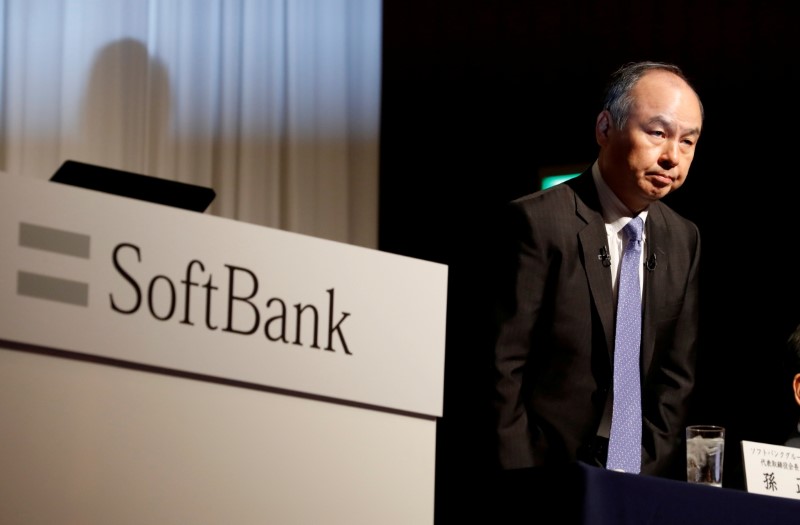• Q1 earnings news doesn’t show impact of China crackdown on Didi, other firms
• Japanese group’s large deals approach can cause volatile results: analysts
Japanese investment giant SoftBank Group said on Tuesday net profit plunged 39% in the first quarter, following big gains in the same period last year related to the US merger of T-Mobile and Sprint.
The corporate behemoth has poured money into some of Silicon Valley’s biggest names and hottest new ventures, from AI to biotech, through its $100 billion Vision Fund.
It reported Japan’s biggest ever annual net profit in 2020-21, driven by tech share rallies as people moved their lives online during the coronavirus pandemic.
The merger of US telecoms operators Sprint – which was controlled by SoftBank Group – and T-Mobile was completed in April 2020, releasing more than 700 billion yen ($6.3 billion) in net income, the conglomerate said on Tuesday.
Net profit in the three months to June 2021 was 761.5 billion yen, compared with 1.26 trillion yen in the first quarter of last year.
Softbank’s investment approach means large transactions can cause unpredictable fluctuations in its results, said Mariko Semetko, senior credit officer at Moody’s Japan.
“Last year’s record high follows the previous year’s record loss, and signifies the highly volatile nature of the company’s business,” she said.
“The company has a very fluid and complex capital structure, and unlisted investments and private financings that have limited transparency and are frequently collateralised. Its investment approach results in high governance risks.”
In 2019-20, SoftBank reported a net loss of 961.6 billion yen – its worst ever – as the start of the pandemic compounded woes caused by its investment in troubled office-sharing start-up WeWork. But it quickly returned to profit as the impact of Covid-19 lockdowns worked largely in its favour.
In the first quarter of the current fiscal year, the telecoms firm-turned-investment giant’s total gain on investments came to 1.26 trillion yen, a year-on-year increase of around 28%.
Gains were led by rises in the share prices of Chinese ride-sharing giant Didi Chuxing and US food delivery app DoorDash, and partially offset by losses including South Korean e-commerce giant Coupang.
Recent crackdown
Analysts said before the earnings release that it was too early for Tuesday’s results to reflect the impact of a recent crackdown on Didi and other US-listed tech firms by Chinese authorities.
In early July, after Didi went ahead with a contentious New York IPO, Beijing announced a probe into the company citing cybersecurity concerns, and ordered its app be removed from stores – moves which have hammered its stock value since then.
And continuing regulatory action in China has cast a shadow over the group’s outlook.
SoftBank CEO Masayoshi Son said on Tuesday that the company was not yet announcing a stock buyback, but he thought about repurchases every day, Reuters reported.
Son said SoftBank Group was facing “tough challenges when it comes to investment in China”.
“We want to be cautious”, he said. “New regulations, new rules are being implemented, so until it gets settled we want to wait and see. In one year or two, it will be clearer.”
SoftBank has also been investing in publicly listed shares through its SB Northstar trading unit. It held stakes in firms worth $13.6 billion at the end of June but the portfolio no longer included Microsoft, Facebook, Alphabet or Netflix, although it did list Amazon.
This does not necessarily mean the company has sold off its holdings in the US firms – it could signal a potential reduction in the number of shares held, despite recent record highs in tech stock prices.
SoftBank did not issue an annual forecast, as its business model is increasingly dependent on often volatile stock market activity.
• AFP and Jim Pollard
This report was updated on August 10.
























